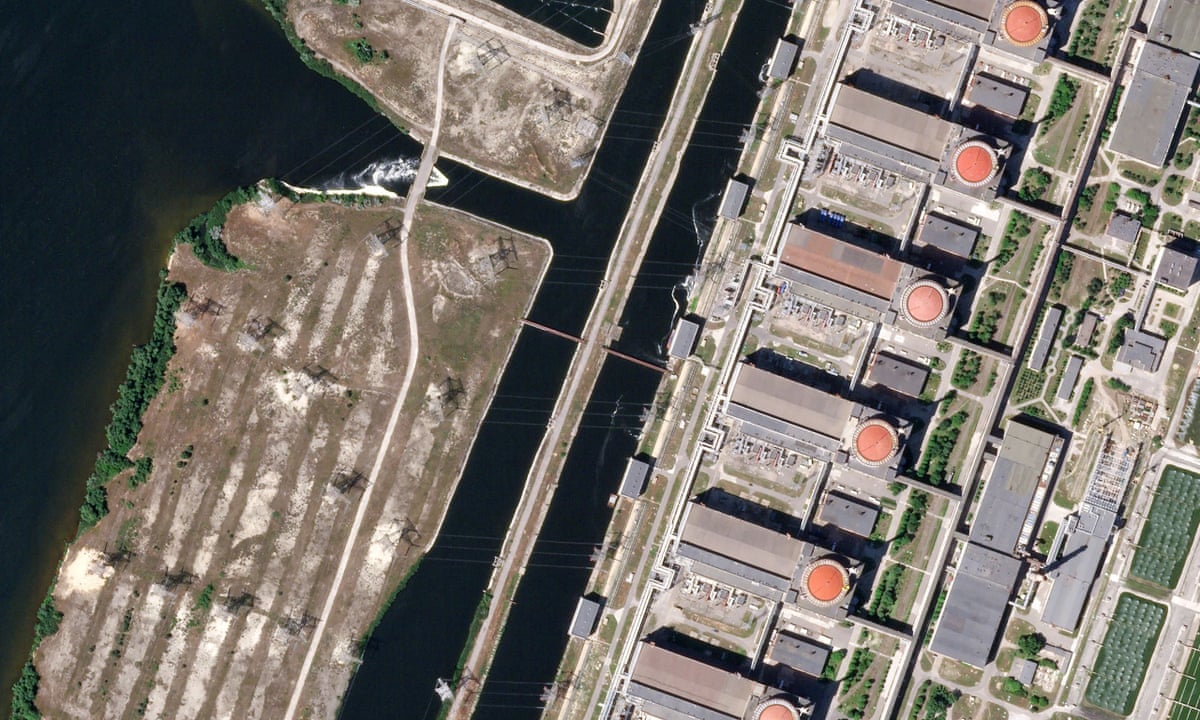Russia-Ukraine War: Not Just An Event Of Two Countries But An Onset Of Invisible Ecosystem Catastrophe!
Ukraine's natural reserves have been severely destroyed or contaminated, including its animal and marine life, water, and biodiversity. Toxins seep out of its ruined industry and infrastructure. Global food security is jeopardised. The world cannot ignore this increasing environmental concern. By the war's conclusion, it will be too late to avoid the worst effects of these heinous atrocities. Global leaders must act immediately.

A War! The Great Russia-Ukraine War- It’s disturbing how this three-letter small word is powerful enough to shake the entire world. Recall the famous devastating event of Hiroshima and Nagasaki. Do you think it destroyed only the civil affairs of Japan? No, it caused an ecological catastrophe in the lands of Japan, whose effects were seen after 2-3 decades even. Further, it would have triggered and given birth to the concept of nuclear winter, which has caused traumatic effects across the world.
Similar kinds of instances can be witnessed in the present time also. Ukraine’s people have become brutally used to war and death forced on them by a nation-state with considerably superior resources: they will never forget the human loss they have experienced in the battle to rescue their homeland. However, Ukraine is also experiencing widespread habitat and environmental damage that will have far-reaching consequences. While it is nearly hard to quantify, the scope and depth of this destruction must be acknowledged.

Russia has intentionally targeted Ukraine’s ecology, including its rivers, forests, and crops. Ukraine’s natural reserves have been severely destroyed or contaminated, including its animal and marine life, water, and biodiversity. Toxins seep out of its ruined industry and infrastructure. Global food security is jeopardised. The world cannot ignore this increasing environmental concern. By the war’s conclusion, it will be too late to avoid the worst effects of these heinous atrocities. Global leaders must act immediately.
The collapse of the dam in Ukraine.
The collapse of the massive Nova Kakhovka dam, which held back one of Europe’s largest water reservoirs, exposed the immense threat to Ukraine’s environment in June. The dam was under Russian authority when an explosion within an interior corridor shattered its concrete heart to pieces. This caused a devastating flood that destroyed over 40 towns and villages and one of the world’s most valuable agricultural areas.
Hundreds of tonnes of oil were dumped into the Dnipro River. Uncountable landmines were dumped into the river and the Black Sea, causing hazardous leaks. According to Ukrainian Environment Minister Ruslan Strilets, at least 150 metric tonnes of oil from the dam had penetrated the Dnipro, with environmental damage estimated at 50 million euros ($53.8 million). One ecological expert warned of the potential consequences of the oil leak. “1 L of oil can contaminate 1 million L of water.” “As a result, 150 tonnes will have a wide range of effects on Ukrainian water resources and the environment,” said Yevheniia Zasiadko, Head of the Climate Department at Kyiv-based environmental non-profit Ecoaction.

Is this the onset of another nuclear disaster?
Today, we are concerned that an even worse ecological calamity is developing at Ukraine’s Zaporizhzhia nuclear power station. Russia seized the plant last year and continues to control it. Ukrainian intelligence has accused Russian soldiers of mining the facility to either damage it before being expelled or manufacture an event to blame on Ukraine. The International Atomic Energy Agency’s director general, Rafael Grossi, visited Zaporizhzhia in June and assessed the situation as “extremely volatile.” Explosives play at a nuclear power plant endangers the environment – for Ukraine and Europe. Nuclear pollution knows no geographical boundaries.
The Kakhovka reservoir, according to Mohammad Heidarzadeh, senior lecturer in the architecture and civil engineering department at the University of Bath in England, is one of the greatest dams in the world in terms of capacity. According to him, the breakdown of this dam would undoubtedly have substantial long-term ecological and environmental detrimental implications not just for Ukraine but also for neighbouring countries and areas.
Can the destruction of this dam threaten upcoming nuclear safety: Could you even dare to imagine another nuclear hazard like Japan’s? Just dare to imagine!!
Even if there is no immediate threat, the dam accident adds additional challenges to the Zaporizhzhya Nuclear Power Plant at a time when nuclear safety and security are already exceedingly precarious. One of the most catastrophic impacts of the dam’s demolition has been the reduced water required to cool the nuclear power plant. The Russian-occupied power plant upstream relies on cooling water from the Dnipro River and the Kakhovka reservoir. Both the cooling pond and the discharge channel are critical to the plant’s safety. Concerns have long been raised regarding the safety of nuclear reactors amid an active fight.

Conclusion.
Returning to the question, the sound of clapping can only be made with two hands. Moscow and Kyiv both recognised the humanitarian and environmental implications while blaming one other for the dam’s collapse. Some of these acts are classified as ecocide under both Ukrainian and Russian law: “the mass destruction of flora and fauna, the poisoning of air or water resources, and any other actions that may cause an environmental disaster.”
Russia’s scorched-earth policy, with its total disrespect for economic-rational thinking, implies an acceptance of greater risks, culminating in heightened irresponsibility and a significant likelihood of unexpected consequences. Losing control of Europe’s largest nuclear reactor, whether deliberate or not, does not create an acceptable situation for the international community.
The battle will finish one day, and environmental protection will be one of the top objectives. Ukraine’s people have become accustomed to conflict, death, and destruction – but we must do all necessary to avert future ecological calamity, which might have unforeseeable ramifications for the region and the world. It is self-evident that the entire planet is heading to hell. The rest of us can escape punishment if we strive to do something about it.




